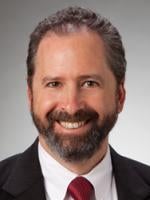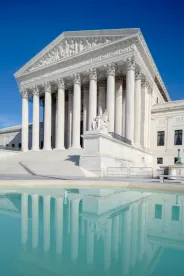On Tuesday, October 25, 2016, a three-judge panel of the United States Court of Appeals for the First Circuit heard argument in United States ex rel. Escobar, et al. v. Universal Health Services, Inc. This case was sent back to the First Circuit by the United States Supreme Court in Universal Health Servs., Inc. v. United States, 136 S. Ct. 1989 (2016) (“Escobar II”). The 90-minute argument focused on the boundaries and application of Escobar II’s “clarified” materiality standard, which will have a significant impact on how False Claims Act (“FCA”) cases are prosecuted and defended in the future.
 The core arguments by Plaintiff-Relators and the United States were (1) the Supreme Court did not articulate a new or heightened standard for pleading materiality (although the Court in Escobar II described the standard as “rigorous,” “demanding,” and subject to “strict enforcement” and heightened pleading requirements); and (2) the fact that a government payor, such as Medicare or Medicaid, may pay claims with knowledge of a provider’s legal violations does not mean the payor does not view the violations as “material.” Such payment, they argued, could be a proper exercise of agency discretion, which should not preclude a future FCA action. The Government referred to this as a potentially appropriate “business decision” by an agency, and not one that demonstrates there is no materiality, and certainly not at the initial stages of a lawsuit. To the contrary, Relators and the Government argued, there could be a number of practical or policy reasons a claim could be paid even if the agency understands it is fraudulent.
The core arguments by Plaintiff-Relators and the United States were (1) the Supreme Court did not articulate a new or heightened standard for pleading materiality (although the Court in Escobar II described the standard as “rigorous,” “demanding,” and subject to “strict enforcement” and heightened pleading requirements); and (2) the fact that a government payor, such as Medicare or Medicaid, may pay claims with knowledge of a provider’s legal violations does not mean the payor does not view the violations as “material.” Such payment, they argued, could be a proper exercise of agency discretion, which should not preclude a future FCA action. The Government referred to this as a potentially appropriate “business decision” by an agency, and not one that demonstrates there is no materiality, and certainly not at the initial stages of a lawsuit. To the contrary, Relators and the Government argued, there could be a number of practical or policy reasons a claim could be paid even if the agency understands it is fraudulent.
Defendant Universal responded by focusing on the agency’s payment decision, which it argued was “singular,” such that once a claim for reimbursement is paid, the payor agency can no longer claim an alleged violation was material to, i.e., capable of influencing, the payment decision, as required by Escobar II. As Universal told the panel, if you ordered a green car and you see I am providing you with a blue one, you cannot accept and pay for the blue car and then later claim an FCA violation. In addition, Relators alleged that MassHealth not only did not exercise any of the payment remedies available to it but continued paying claims submitted despite the Department of Health’s findings of violations of staff and licensing requirements for Universal’s mental health facilities. Universal argued the Government cannot knowingly ignore legal noncompliance and rely on private relators to uncover and prosecute FCA violations. Counsel also focused on what he called “rare” evidence of actual government knowledge in this case.
The panel of judges was very active in its questioning during this lengthy hearing and appeared unsure of how to interpret and apply the Escobar II ruling. At the conclusion of the hearing, Chief Judge Howard captured what seemed to be the panel’s overall view, promising “we’ll do the best we can with this.” We will report on the First Circuit’s forthcoming ruling.




 />i
/>i

